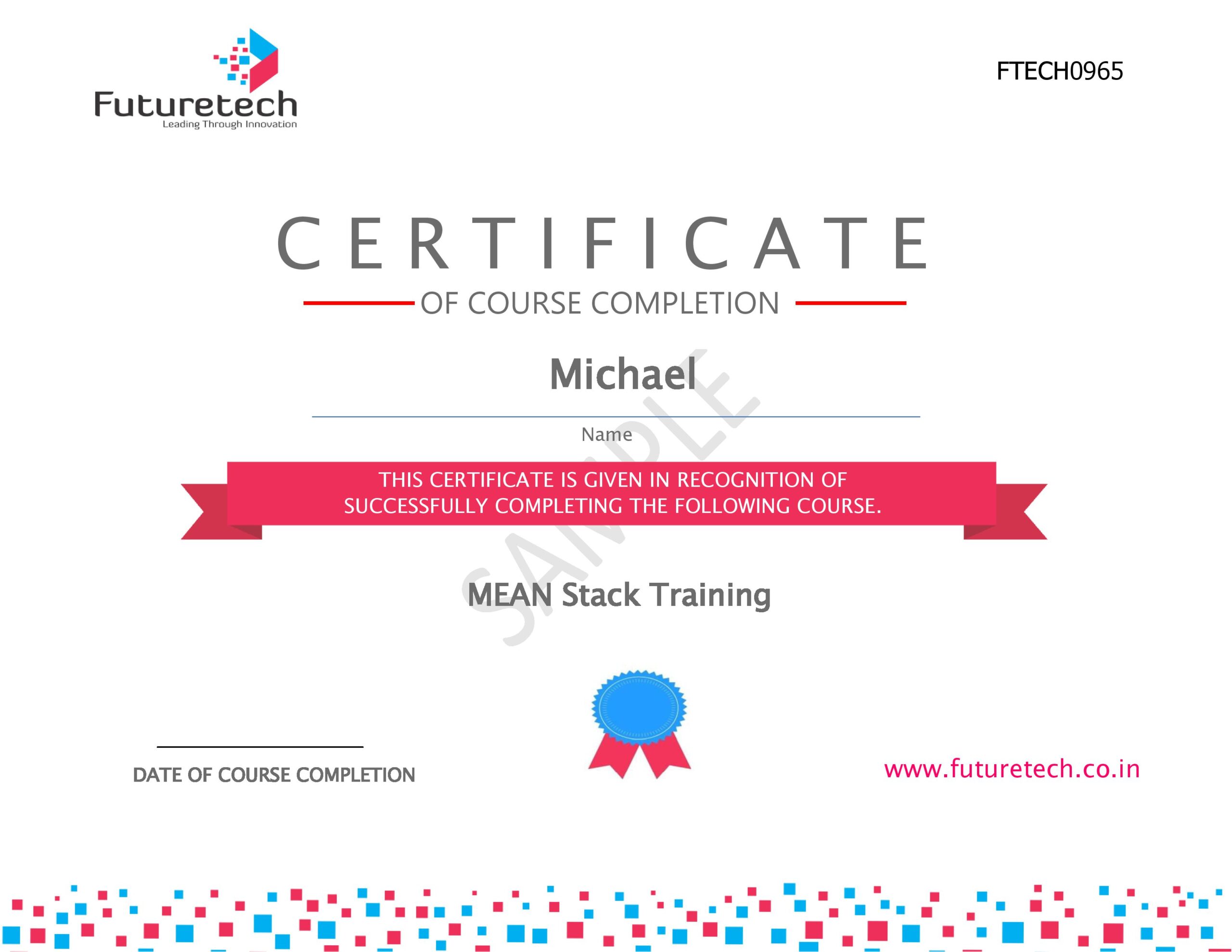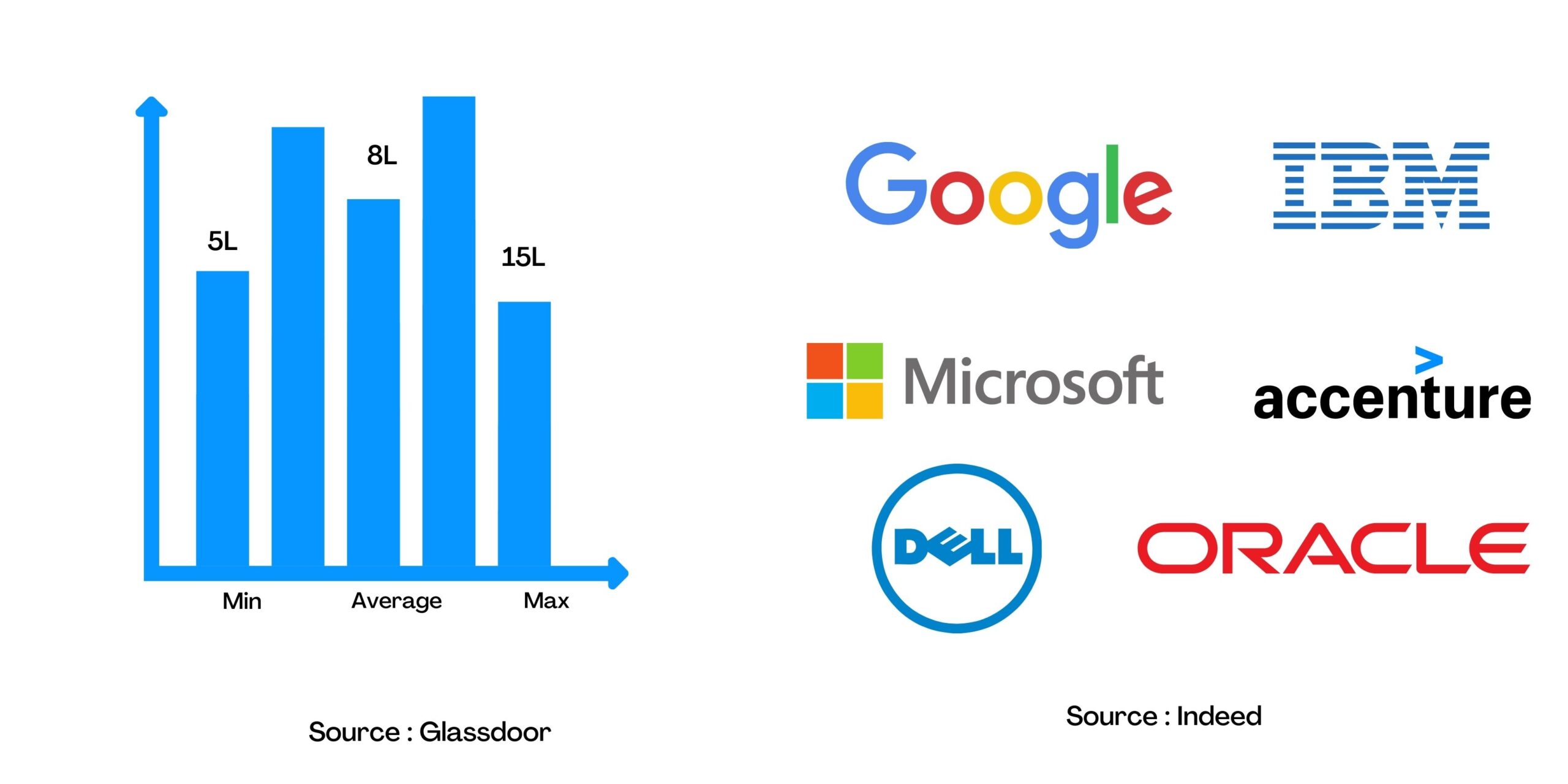- Home
- MEAN Stack Certification Course
MEAN Stack Certification Course
Advance your career with the best MEAN Stack Course online. Learn the top skills to stay upfront in the domain of MEAN Stack, including Angular, Node.js, Express.js, MongoDB, etc.
- 4.8 Ratings /1300 Reviews
- 5000+ Professionals Enrolled
- 98.3% Success Rate
Request a Callback
Menu
Course Overview
General Description
Advance your career with the best MEAN Stack Course online. Learn the top skills to stay upfront in the domain of MEAN Stack, including Angular, Node.js, Express.js, MongoDB, etc. Also, learn JavaScript and CSS to build interactive applications today
Key Features
- 100% Job-oriented DevOps certification
- Access to AI-powered live interactive platform
- Gain expertise under industry-experts and masters in the field of MEAN Stack
- Get personalized support anytime, and anywhere!
Course Objectives
At the end of this MEAN Stack certification course online, you will be able to
- Learn core IT concepts from industry experts in a content structured manner
- Build end-to-end scalable applications with 100% full-proof features for better testing results
- Earn industry recognised MEAN Stack certification course online
- Master the skills, including, Agile, HTTP, CSS, API Testing, Express.js, and more
- Learn to use the latest tools- Angular, Jenkins, Docker, etc
Course benefits
- It helps you build real-world solutions and scalable web application like Reddit
- It helps you apply the technicalities of MongoDB, Angular, and Node.js to your web development projects
- Also, it helps you stand a chase for better options for career growth with high pay packages competitively
Target Audience / Prerequisites
- Front end developers who are looking for a foundation in MEAN Stack
Certification


Sample Certificate
- After successfully completing the training programme, as well as the real-time hands-on and projects, you will be awarded a Futuretech course completion certificate.
Course Duration & Course Schedule Date
- Duration: 3 Days
Course Outline
Day 1:
- Overview about Typescript
- ES5 and ES6
- Why Typescript
1) Getting Started with Angular
- What is Angular?
- Architecture of Angular Apps
- Your First Angular App
2) Introduction to Components
- Introduction to Components Property Binding
- What Is a Component
- Creating the Component Class
- Defining the Metadata with a Decorator
- Importing What We Need
- Demo - Creating the App Component
- Bootstrapping Our App Component
3) Templates, Interpolation, and Directives
- Introduction to Templates, Interpolation, and Directives
- Building a Template
- Building the Component
- Using a Component as a Directive
- Binding with Interpolation
- Adding Logic with Directives – ngIf
- Adding Logic with Directives – for
4) Data Binding & Pipes
- Introduction to Data Binding & Pipes
- Property Binding
- Handling Events with Event Binding
- Handling Input with Two-way Binding
- Transforming Data with Pipes
- Pure and Impure Pipes
5) More on Components
- Introduction to More on Components
- Defining Interfaces
- Encapsulating Component Styles
- Using Lifecycle Hooks
- Building Custom Pipes
- Relative Paths with Module Id
6) Building Nested Components
- Introduction to Building Nested Components
- Building a Nested Component
- Using a Nested Component
- Passing Data to a Nested Component Using @Input
- Passing Data from a Component Using @Outpu
Day 2:
7) Forms
- How to work with Forms
8) Services and Dependency Injection
- Introduction to Services and Dependency Injection
- How Does It Work
- Building a Service
- Registering the Service
- Injecting the Service
9) Retrieving Data Using HTTP
- Introduction to Retrieving Data Using HTTP
- Observables and Reactive Extensions
- Sending an HTTP Request
- Exception Handling
- Subscribing to an Observable
10) Navigation and Routing Basics
- Introduction to Navigation and Routing Basics
- How Routing Works
- Configuring Routes
- Tying Routes to Actions
- Placing the Views
1) Introduction
- Overview of NodeJS
- Installing NodeJS on windows
2) Exploring language additions to the V8 JavaScript engine
- Role of Node Package Manager (NPM)
- Global vs. Local NPM installation
3) Understanding NodeJS
- Understanding require() and modules
- Understanding callback execution in the event loop
- Creating a project
- The package.json configuration file
4) HTTP and File System
- The HTTP protocol
- Building an HTTP server
- Rendering a response
- Synchronous vs. asynchronous I/O
- Path and directory operations
- __dirname and __filename
- Asynchronous file reads and writes
- Watch Update
5) Buffers, Streams, and Events
- Using buffers for binary data
- Flowing vs. non-flowing streams
- Streaming I/O from files and other sources
- Processing streams asynchronously
- Configuring event handlers
Day 3:
6) Using Express Framework
- What is Express.js?
- Installing Express.js
- Building a Hello Express application
7) Working with Models, Views, and Routes
- Creating routes
- Creating view with ejs & jade engine
- Using templates
- Adding partials
- Using locals and conditional templates
- Modularizing our routes
- Working with Data
8) Database
- RDBMS databases and NoSQL databases
- Connecting to RDBMS and NoSQL databases
9) Working with MongoDB
- Setting Up MongoDB
- Installing MongoDB
- Using Mongo DB in Node.js
- Structuring Your Data for MongoDB
- Understanding the Basic Operations
10) Working with RESTful web services
- Getting Data
- Posting Data
- Updating Data
11) Angular With Node
- How to integrate Angular App with Node
Reviews
Shaik Abdullah (Visteon)
★★★★★
Read More
Overall experience is very good. Guidelines given by trainers were excellent. It is well designed course with practical orientation
Lipsa Tripathy (Mindtree Ltd)
★★★★★
Read More
All of the trainers were excellent, extremely professional and knowledgeable and created positive learning environments.
Rajeev (CSC India Pvt)
★★★★★
Read More
I thoroughly enjoyed this training. The tutor's attitude was exemplary. He displayed a good knowledge of the subject and built up a rapport with the attendees in no time.
Priyanka Mishra (GI)
★★★★★
Read More
This place is great for doing corporate training- a central location and well equipped. Good facilities for lunch and with good travel links - an ideal venue
Sourav (Mindtree Ltd)
★★★★★
Read More
Very well organised and implemented. A lot of lessons learned. The training was commendable and the trainers were also professional. Overall a good experience.
Previous
Next
Job Opportunities


FAQ
MEAN Stack has a base of JavaScript, and so if you find JavaScript to be difficult, MEAN Stack would be difficult. However, in other scenarios, people find MEAN Stack easy to learn.
Future Tech’s MEAN Stack Certification Course is available online, and you can enroll today to master core fundamentals and gain hands-on experience in real-life problems.
MEAN Stack is a growing trend. And so, learning with the right mentors and industry experts would help you gain better opportunities at hand.
In India, the average salary for MEAN Stack developers ranges between 5.3 LPA to 6 LPA. The experience applicable for this salary is a maximum of two years.
Here is a list of companies who use MEAN Stack:
- Fiverr
- Vungle
- Accenture
- Capabilities Stack, etc.

